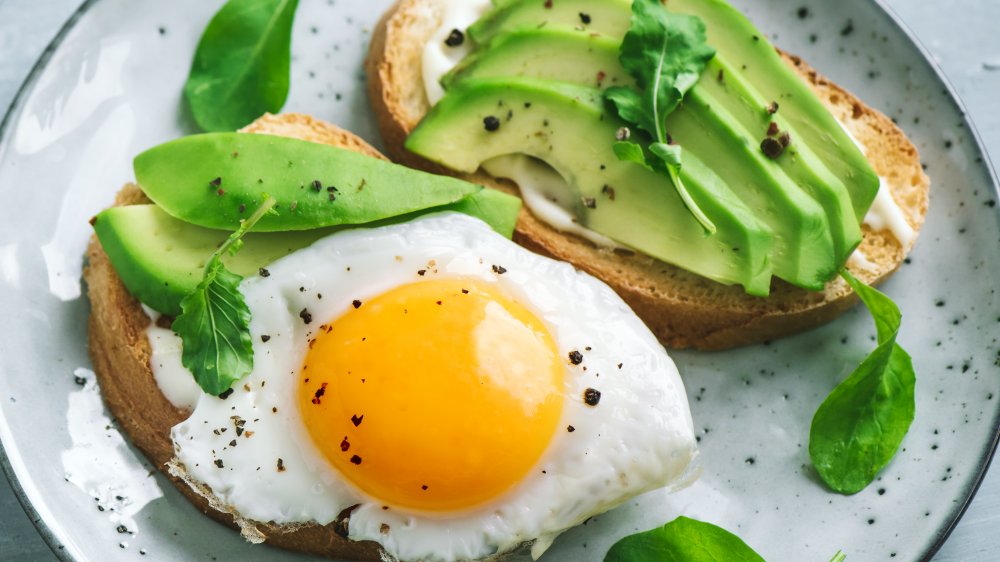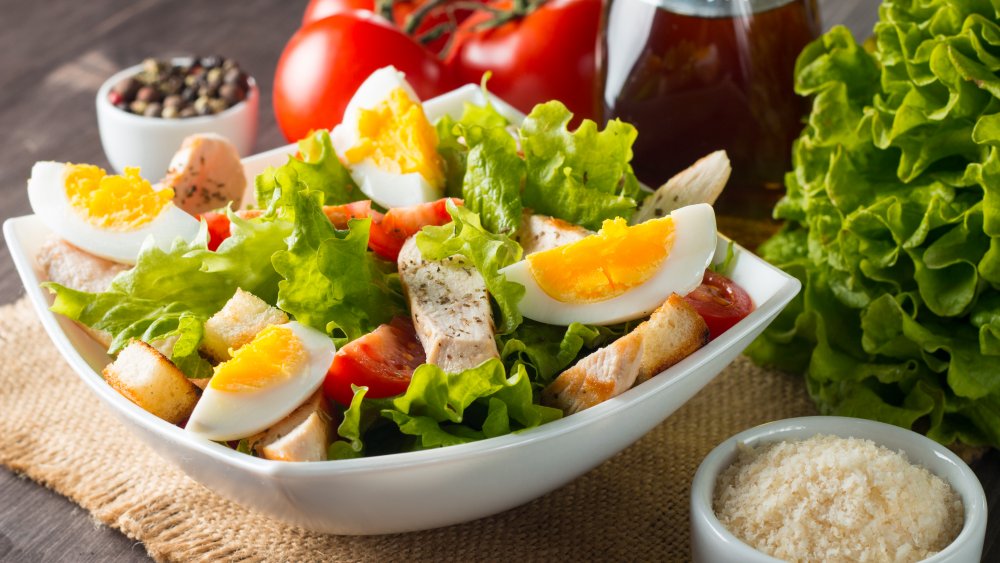You've Been Eating Eggs Wrong This Whole Time
If eggs are a morning must-have, you can breathe a sigh of relief. That study that came out in 2019 linking egg consumption to cholesterol to heart disease? It may not be all that it's cracked up to be. According to The Harvard School of Public Health, while eggs (and especially egg yolks) are cholesterol-rich, they also contain nutrients that could lower your risk of heart disease, making it an even sum game. Moreover, by and large, your body's cholesterol doesn't come from the food you eat. Instead, it's mostly made by your liver, which creates cholesterol from saturated and trans fats. Eggs are low in saturated fat (via Harvard Health Publishing).
What does that mean? If you're eating only egg whites, you're eating your eggs wrong. Egg yolk lovers, you're back in the game. Egg yolks, after all, contain all an egg's vitamins and minerals, including vitamin D, vitamin A, and the eye-strengthening lutien and zeaxanthin (via the Houston Chronicle and American Optometric Association).
Yes, you should eat your eggs whole. But that doesn't mean that all variations of eggs were created equal. We're back to the basics, folks. Avoid adding fat to your meal and reduce your yolk's oxidation (thereby getting the most nutrients) by poaching or boiling your eggs (via Spoon University). Try cooking them, slowly, between 145 and 158 degrees Fahrenheit. Why? That will prevent the rubbery, chalky textures you get when your egg proteins cook to soon (via Saunder's Eggs and Fine Cooking).
If you don't combine eggs with other foods, you're eating your eggs wrong
Don't roll your eyes. Yes, there's more. If you're consistently eating your eggs separately from other foods, you're not getting all the nutrients out of them as you could. That's because, as the BBC reported, when you eat your eggs with other foods, that can help you absorb more vitamins.
Specifically, adding eggs to a salad chock-full of raw vegetables will provide you with the lipids you need to better absorb the vegetables' carotenoids. This, in turn, can help reduce inflammation and oxidative stress (via Science Daily). Oxidative stress, for those of us who didn't major in medicine, can lead to cell and tissue damage and contributes to conditions such as cancer, diabetes, and heart disease (via Medical News Today).
Why exactly does an egg help boost the nutrient value in a salad? The science behind it is pretty simple. Cartenoids are fat-soluble. Lipids, essentially, serve as the fatty vehicle that helps the carotenoids enter into your bloodstream. We know what you're thinking. Permission granted. Not only should you eat eggs with your salad, but go ahead and use your favorite creamy salad dressing, too. It'll give you an extra helping of fat to help you absorb vitamins (via Time). Just be careful not to overdo it because too much dressing can lead to too many calories.

